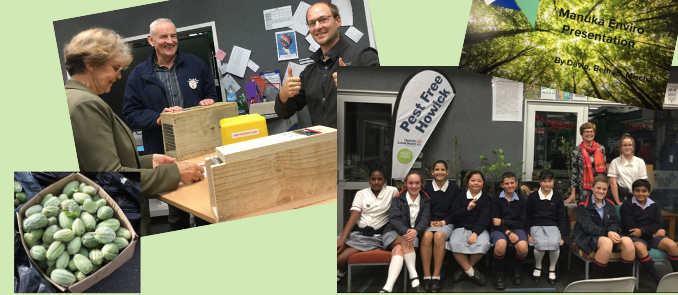As our club settles into a much more normal system of meetings, on Monday we welcomed Cate Jessop , Enviroschools and Sustainable schools advisor for Auckland City Council and two students, Jessie and Ashley from Farm Cove Intermediate to address members and guests.
Cate began with a poll covering some of our beliefs about environmental change and future needs. While we were far from being unanimous there was a general understanding that it takes many years to effect real change to attitudes about the environment, that its going to take a long time to effect actual environmental improvement and the sooner and younger we start people thinking about the environment the better.
Enviroschools which started twenty years ago is based on the whakatauki - “success is not the work of an individual but the work of many” a sentiment that is closely mirrored in Rotary’s own ideals. With 1000 New Zealand schools now signed up and active members [39% of all schools] the notion of building a more sustainable future is the key focus of this initiative.
For Farm Cove the guiding ideal is “to foster a generation of people who instinctively think and act sustainably.”
The Enviroschools model is based on four pillars, each of which is on display at Farm Cove Intermediate:
Place – Wahi. Ecological design and action in the natural and built environment. E.g. edible gardens, beehives, solar panels and the local environment.
Practices – Tikanga. Sustainable practices in the day to day running of the school.e.g. being a Wastewise school, a worm farm and the use of eco-friendly products in the school.
Programmes – Kaupapa Ako. A living curriculum with sustainability integrated into learning and action. E.g inquiry learning, Te Whare Ako lessons, student well-being surveys.
People and participation – Tangata. E.g. local beach clean ups, moth plant eradication, Pestival, Zero waste Rotary Carnival.

While we often think that the natural order of things is to educate the parents who will then pass that knowledge and those attitudes through to their children, but research has shown in areas such as diet and the environment, children can often be powerful catalysts for change in their families. That enthusiasm for a more sustainable future was evident in Jessie and Ashley’s presentation and in Cates obvious belief in, and passion for, the work she does with schools.